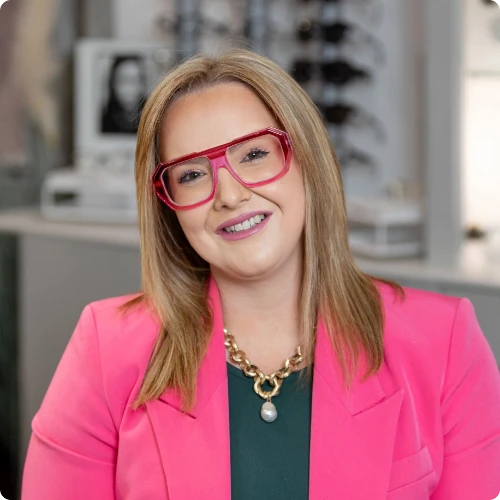Protecting our eyes during autumn and winter is often overlooked, but it can be the most hazardous time of year for some, especially when it comes to driving! Whether you’re commuting to and from work or having to take longer journeys, winter driving can put a real strain on your eyes. If night driving is becoming difficult, the first thing to do is to book an eye test.
As we get older, many people develop cataracts, and this can contribute to glare at night. An eye test can help rule out if this is a problem. If your eye health is fine, speak to us for advice on the best lenses to help combat glare. Beware of just buying tinted glasses off the shelf! You may find you’re having difficulty adjusting to driving in the dark with all the bright lights glaring at you from other cars or you struggle with visibility due to adverse weather conditions. There are different lenses and filters that can improve your driving experience.
Polarised lenses will help reduce glare reflected on a wet road. Tints aren’t recommended for night driving, but some people find a yellow tint is good for enhanced contrast during the daytime. Brown or grey tints don’t affect your colour perception, which makes them a good choice. If you pick lenses with the darkest part of the tint at the top and less intensity at the bottom, it is easier to see the instrument panel inside the car. Talk to us as we have many lens options available to help you improve your driving experience. Wearing anti-glare driving glasses will minimise the effects of bright lights from other cars. Additionally, you’ll need to ensure your glasses (if you have them) and windscreen are clean – and give your eyes a well-deserved rest after long journeys.
While we generally associate long nights and darkness with winter, we can often underestimate the intensity and brightness of low winter sunshine. It is a really good idea to make sure you protect your eyes with appropriate sunglasses that have a ‘UV 400’ rating to shield your eyes and avoid UV damage. The good news is you’ll be able to also use these for winter sun or skiing.
As we know, driving requires our full concentration. You need to be able to see clearly what’s coming up while also processing threats from the side and scanning your mirrors. It is important to have good visual acuity so you can see sharply in the distance, and good visual fields, a phrase describing your ‘all round’ or peripheral vision. If you have concerns about your sight or simply haven’t had an eye test in the last two years, pop in and see us. An eye test can help you drive more safely, protecting both yourself and others.







